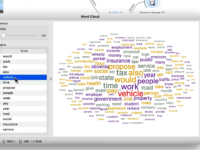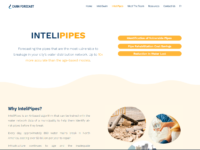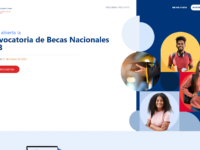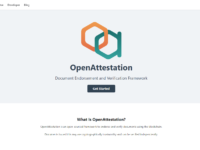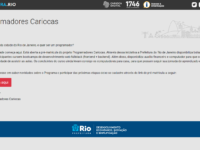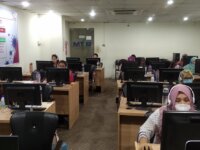The Sanitation Regulatory Agency of the State of Bahia (Agência Reguladora de Saneamento do Estado da Bahia - AGERSA) is responsible for overseeing the provision of public basic sanitation services in 366 municipalities. With the aim of keeping the team safe, optimizing the inspection action, making the inspection time more cost effective, as well as making the diagnoses more complete, the use of drones was incorporated in the field inspections. Using Drones enhances the safety of the technical…
Innovation Tag: Digital and Technology Transformation
Every day, civil servants and officials are confronted with many voluminous documents that need to be reviewed and applied according to the information requirements of a specific task. This is the case when making decisions, drafting legislation and policies, reviewing legislation and policies, assessing the impact of legislation and policies, carrying out various analyses, describing data sources and services, and many other tasks. To enhance the processing efficiency and comprehensive analysis…
Water networks are confronted with aging infrastructure, increased urban population, and climate change. The City of Greater Sudbury has collaborated with CANN Forecast to implement InteliPipes, an AI-based decision-support system that leverages various data sources to improve the overall reliability of its water network. With it the City can (a) understand better the network’s degradation over time, (b) tailor inspection plans and replacement programmes, and (c) optimise watermains…
The Unique Scholarship Portal (Portal Único de Becas “Beca tu Futuro”) is a web platform that aims to concentrate all scholarship opportunities in a single portal. In this way, it documents and manages everything from the publication of the call for applications to the awarding of scholarships. The portal benefits all the citizens of the Dominican Republic who wish to apply for a scholarship. Moreover, the portal serves as a management tool for the scholarships' evaluators and the…
Singapore's Government developed OpenAttestation, an open-source framework to support endorsement and verification of documents using the blockchain. With this, an easy and reliable way to issue and validate tamper-proof certificates is readily available to the Government as well as any adopters locally or internationally.
Prioritization of projects and initiatives is often challenging and traditionally requires significant investment in administrative time and effort. The Town of Aurora has created a process that automates the prioritization of projects through an algorithm that scores projects based on Service Improvement, Financial Viability, Reputation Improvement and Ease of Implementation.
Cariocas Programmers (Programadores Cariocas) is an initative developed by the Rio de Janeiro City Hall (Prefeitura da Cidade do Rio de Janeiro) based on a study that found that there is a deficit of 24,000 vacancies per year in the technology sector. Thus, the initiative aims to train and qualify young people from marginalised backgrounds (in particular refugees, black, women and transgender people) in the area of programming.
The municipality of Florianópolis and TopMed have innovated health care with the creation of Hello Health Floripa (Alô Saúde Floripa). The service is designed to fulfil the principle of universality, guaranteeing access to healthcare for 100% of the population. Using digital channels (phone or app), it connects any citizen to a health professional, 24 hours a day, without need of travelling. The innovation also organises access to health, generates savings and balance for public health. The…
Citizens travelling on federal highways do not have fast and reliable internet access in the vicinity of the operational and administrative units of the Federal Highway Police. In many regions of Brazil, the 3G/4G internet signal is practically null, and the units of the Federal Highway Police are, in some cases, the only point with access to the world wide web. Through this project, the Government expanded free internet access for citizens in these areas by authentication via the gov.br…
Being a densely populated country with inadequate healthcare infrastructure, providing treatment to COVID patients and keeping them in the hospital while maintaining social distance to prevent rapid community level transmission proved to be a difficult task. Therefore, COVID-19 Telehealth Center was established to ensure healthcare for COVID positive patients from their home, just a call away.


